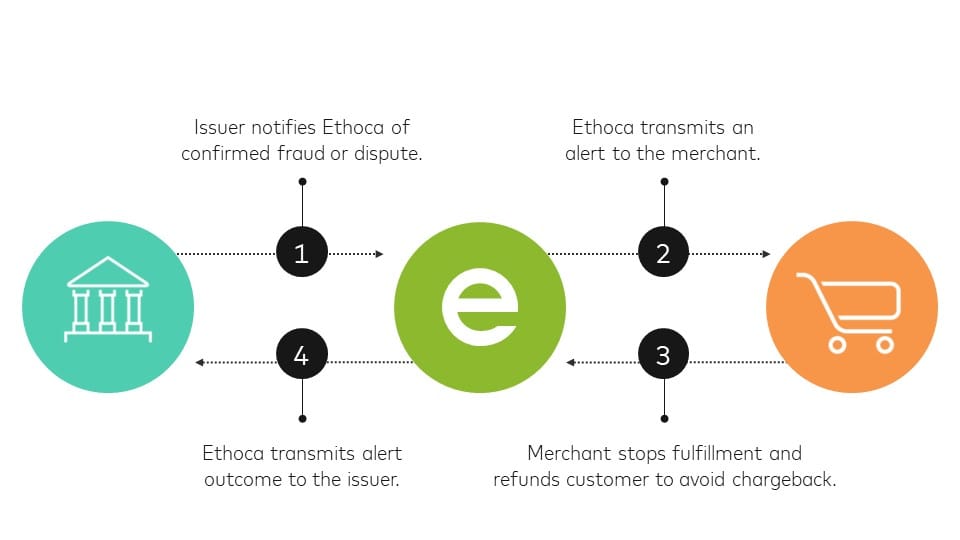
SuperPay helps bookstore owners like yourself get paid as quickly as possible. Choose our platform to power your payments & billing.
The bookstore industry has experienced significant changes in recent years, largely due to the impact of digitalization and online shopping. As technology continues to advance, it is essential for bookstore owners and enthusiasts to stay ahead of the curve and understand the future trends that will shape the industry.
In this blog post, we will explore the current state of the bookstore industry, including the rise of ebooks and audiobooks, the influence of online shopping, and the importance of digital marketing strategies. We will then delve into the trends that are expected to shape the future of bookstores, such as the return to physical books, the emergence of experience-based bookstores, the role of independent bookstores, and the importance of sustainability.
Additionally, we will examine the technological innovations that are revolutionizing the bookstore industry, including the incorporation of augmented reality and virtual reality, the utilization of AI and big data, and the rise of self-publishing platforms. These innovations are not only changing the way books are consumed but also opening up new opportunities for bookstore owners to engage with their customers.
Furthermore, we will explore the role of community in future bookstores and how creating spaces for events and gatherings, building local partnerships, and fostering a love of reading in the community can contribute to the success and sustainability of bookstores.
Join us as we navigate through the exciting future of the bookstore industry, uncovering the trends and innovations that will shape the way we experience and interact with books. Whether you are a bookstore owner, a book lover, or simply curious about the future of the industry, this blog post will provide valuable insights and inspiration for the road ahead.
Understanding the Current Bookstore Industry
The current state of the bookstore industry is influenced by various factors, including consumer preferences, technological advancements, and market dynamics. To gain a comprehensive understanding of the industry, it is crucial to examine these key aspects in detail.
One significant factor that has shaped the current bookstore industry is the rise of digitalization. With the advent of ebooks and audiobooks, traditional bookstores have faced increasing competition from online platforms. Consumers now have the convenience of accessing a vast library of books at their fingertips, which has led to a decline in physical book sales.
Another important aspect is the impact of online shopping on bookstores. With the ease of purchasing books online, customers have shifted towards digital platforms like Amazon, Barnes & Noble's online store, and various independent online bookstores. This shift has resulted in the closure of several brick-and-mortar bookstores and a change in consumer behavior.
In addition, digital marketing strategies have become essential for bookstores to remain competitive. Online promotions, social media engagement, and targeted advertising play a crucial role in attracting customers and driving sales. Bookstores that have successfully adapted their marketing strategies to the digital landscape have seen improved customer engagement and sales growth.
Understanding the current bookstore industry also involves recognizing the challenges faced by traditional bookstores. Rising rental costs, competition from online retailers, and changing consumer habits are some of the hurdles that traditional bookstores must overcome to survive in the current market.
By examining these factors, we can gain valuable insights into the current state of the bookstore industry and the challenges that bookstores face. This understanding will serve as a foundation for exploring the future trends and opportunities that lie ahead in the evolving landscape of the bookstore industry.
The Impact of Digitalization on Bookstores
Digitalization has had a profound impact on the bookstore industry, transforming the way books are consumed, purchased, and distributed. In this section, we will explore the various aspects of digitalization and how they have influenced bookstores.
The Rise of Ebooks and Audiobooks
One of the most significant impacts of digitalization on bookstores is the rise of ebooks and audiobooks. These digital formats have gained popularity among readers due to their convenience and accessibility. With ebooks, readers can carry an entire library in their handheld devices, eliminating the need for physical books. Audiobooks, on the other hand, offer a unique auditory experience, allowing readers to enjoy books while multitasking.
The availability of ebooks and audiobooks has reshaped the publishing landscape, with many authors and publishers opting to release digital versions alongside or even before the print editions. This shift has presented challenges for traditional bookstores, as customers now have more options for accessing and consuming books digitally.
How Online Shopping has Affected the Bookstore Industry
The growth of online shopping platforms has significantly impacted the bookstore industry. Customers now have the convenience of browsing and purchasing books from the comfort of their homes, leading to a decline in foot traffic in traditional brick-and-mortar bookstores. Online giants like Amazon have capitalized on this trend, offering a vast selection of books and personalized recommendations to customers.
Online platforms have also facilitated the growth of independent online bookstores, allowing them to reach a wider audience and compete with larger retailers. However, this shift to online shopping has posed challenges for traditional bookstores, forcing them to adapt their business models to remain competitive.
Digital Marketing Strategies for Bookstores
As the bookstore industry embraces digitalization, effective digital marketing strategies have become crucial for success. Bookstores are leveraging social media platforms, email marketing, and online advertising to reach their target audience and promote their offerings. Engaging with customers through blogs, podcasts, and online book clubs has also become a popular way to connect and build a community around books.
Bookstores that have embraced digital marketing have seen increased customer engagement and brand visibility. By leveraging technology, they can reach a broader audience and tailor their marketing efforts to specific customer segments.
Understanding the impact of digitalization on bookstores is vital in navigating the changing landscape of the industry. By embracing digital formats, adapting to online shopping trends, and implementing effective digital marketing strategies, bookstores can thrive in the digital age and provide unique experiences to their customers.

Trends Shaping the Future of Bookstores
The future of bookstores is shaped by various trends that reflect changing consumer preferences, advancements in technology, and the evolving role of physical spaces. In this section, we will explore the key trends that are expected to shape the future of bookstores.
The Return to Physical Books
While digitalization has revolutionized the way books are consumed, there is a growing trend among readers to return to physical books. Many readers appreciate the tactile experience of holding a physical book, flipping through its pages, and displaying it on their bookshelves. Bookstores that cater to this trend by offering a wide selection of physical books and creating inviting browsing experiences can attract customers who seek the tangible pleasure of reading.
The Emergence of Experience-Based Bookstores
In an era where online shopping dominates, bookstores are finding new ways to differentiate themselves by creating unique and immersive experiences. Experience-based bookstores offer more than just a place to purchase books; they provide a curated environment that promotes engagement and community. These bookstores may include features such as cozy reading nooks, coffee shops, author events, literary workshops, and interactive displays that enhance the overall reading experience. By offering these experiential elements, bookstores can attract customers who are seeking more than just a transactional shopping experience.
The Role of Independent Bookstores
Independent bookstores are making a comeback as consumers increasingly value supporting local businesses and seeking unique offerings. These bookstores often have a curated selection of books, personalized recommendations by knowledgeable staff, and a strong sense of community. Independent bookstores can differentiate themselves by fostering connections with local authors, organizing book clubs or reading groups, and hosting literary events that bring the community together. The personalized and community-focused approach of independent bookstores resonates with many readers, making them an important trend in the future of the bookstore industry.
Sustainability in the Bookstore Industry
With growing environmental concerns, sustainability is becoming a significant trend in various industries, including bookstores. Bookstores are adopting eco-friendly practices by minimizing plastic packaging, offering recycled or sustainable paper products, and promoting the concept of buying used books. Additionally, bookstores are actively engaging in initiatives such as book swaps, book donation programs, and partnerships with local libraries to promote a circular economy and reduce waste. By prioritizing sustainability, bookstores can attract environmentally conscious customers and contribute to a more sustainable future.
By embracing trends such as the return to physical books, creating experience-based environments, supporting independent bookstores, and prioritizing sustainability, the future of bookstores can thrive in an increasingly digital world. These trends not only cater to the evolving preferences of readers but also provide opportunities for bookstores to create unique and engaging experiences that go beyond the act of purchasing a book.
Technological Innovations in the Bookstore Industry
Technological innovations play a crucial role in shaping the future of the bookstore industry. From incorporating augmented reality and virtual reality to utilizing AI and big data, these advancements offer exciting opportunities for bookstores to enhance the customer experience, streamline operations, and stay ahead of the competition. In this section, we will explore some of the key technological innovations transforming the bookstore industry.
Incorporating Augmented Reality and Virtual Reality
Augmented reality (AR) and virtual reality (VR) technologies have the potential to revolutionize the way customers interact with books and bookstores. AR can be used to create immersive experiences, allowing customers to scan book covers and access additional content such as author interviews, 3D illustrations, or interactive maps. VR, on the other hand, can transport readers to virtual bookstores, where they can browse shelves, attend virtual author events, and even explore fictional worlds. By integrating AR and VR into the bookstore experience, retailers can provide unique and engaging interactions that appeal to tech-savvy customers.
Use of AI and Big Data
AI and big data have become powerful tools for bookstores to gather insights, personalize recommendations, and optimize operations. By analyzing customer data, bookstores can understand reading preferences, buying patterns, and demographics, enabling them to offer personalized recommendations and targeted marketing campaigns. AI-powered chatbots can provide customer support and assist with book recommendations. Additionally, big data analytics can help bookstores optimize inventory management, pricing strategies, and supply chain operations. By harnessing the power of AI and big data, bookstores can enhance customer satisfaction and drive operational efficiency.
Self-Publishing Platforms
Technological advancements have democratized the publishing industry, allowing authors to bypass traditional publishing houses and self-publish their works. This has led to the emergence of self-publishing platforms, such as Amazon's Kindle Direct Publishing (KDP) and Smashwords, which enable authors to publish and distribute their books digitally. Bookstores can leverage these platforms by hosting events and workshops to educate aspiring authors on self-publishing, establishing partnerships with local self-published authors, and dedicating sections to showcase self-published works. By embracing self-publishing platforms, bookstores can support local authors and offer a diverse range of content to their customers.
Technological innovations continue to reshape the bookstore industry, offering exciting possibilities for enhancing the customer experience, optimizing operations, and supporting local authors. By incorporating augmented reality and virtual reality, utilizing AI and big data, and embracing self-publishing platforms, bookstores can position themselves at the forefront of the digital revolution, ensuring their relevance and success in the future.
The Role of Community in Future Bookstores
Community plays a crucial role in the future of bookstores. As the digital age continues to advance, bookstores have the opportunity to create spaces that foster connections, engagement, and a love of reading within their communities. In this section, we will explore the importance of community in future bookstores and how they can cultivate a sense of belonging and support among their customers.
Creating Spaces for Events and Gatherings
Bookstores can become vibrant community hubs by offering spaces for events and gatherings. This can include author readings, book signings, book clubs, writing workshops, storytelling sessions for children, and literary discussions. By hosting these events, bookstores provide opportunities for readers to engage with authors, share their love for books, and connect with like-minded individuals. Creating a welcoming and inclusive environment encourages customers to not only visit the bookstore but also become active participants in the local literary community.
Building Local Partnerships
Collaborating with local organizations, schools, libraries, and businesses is another way bookstores can strengthen their ties to the community. Partnering with schools can lead to book fairs, reading programs, and author visits. Collaborating with libraries can result in shared resources, joint events, or even community-wide reading initiatives. Building relationships with local businesses can lead to cross-promotions, joint marketing efforts, and the development of loyalty programs that benefit both the bookstore and the community. By working together, bookstores and their community partners can create a thriving literary ecosystem.
Fostering a Love of Reading in the Community
Bookstores have a unique opportunity to foster a love of reading in their communities by promoting literacy initiatives and supporting educational programs. This can involve hosting literacy workshops, offering reading recommendations for different age groups, and partnering with schools or literacy organizations to provide resources for underserved communities. By actively engaging in initiatives that promote reading and literacy, bookstores can play a vital role in nurturing a lifelong love of books within the community.
By embracing the role of community, bookstores can evolve into more than just places to buy books. They can become spaces that bring people together, encourage intellectual and creative exploration, and promote a love of reading within their communities. By creating spaces for events and gatherings, building local partnerships, and fostering a love of reading, bookstores can cultivate a sense of belonging and contribute to the cultural fabric of their communities.


